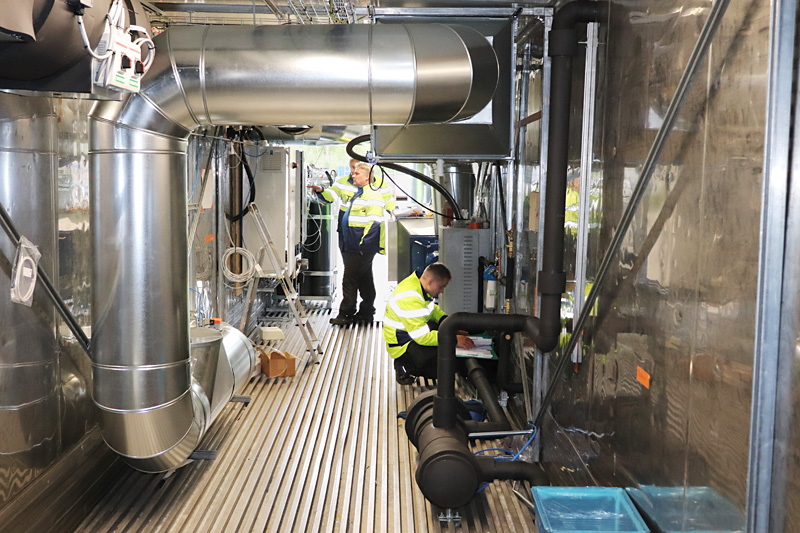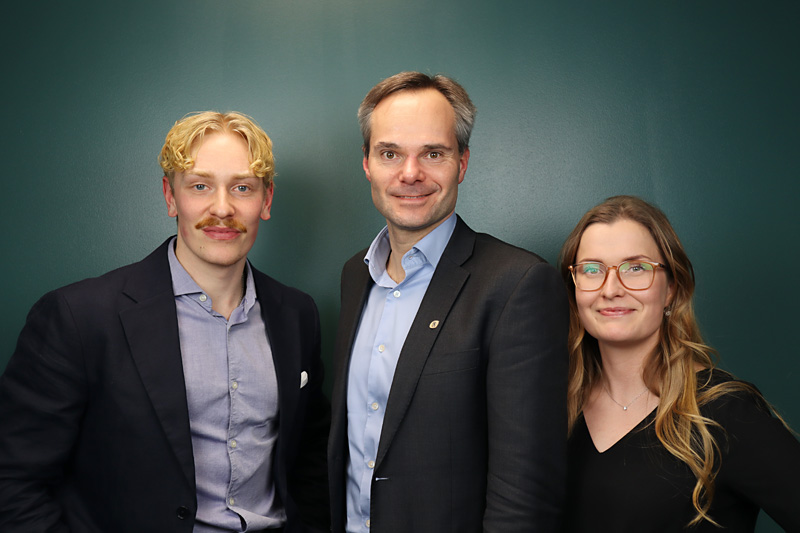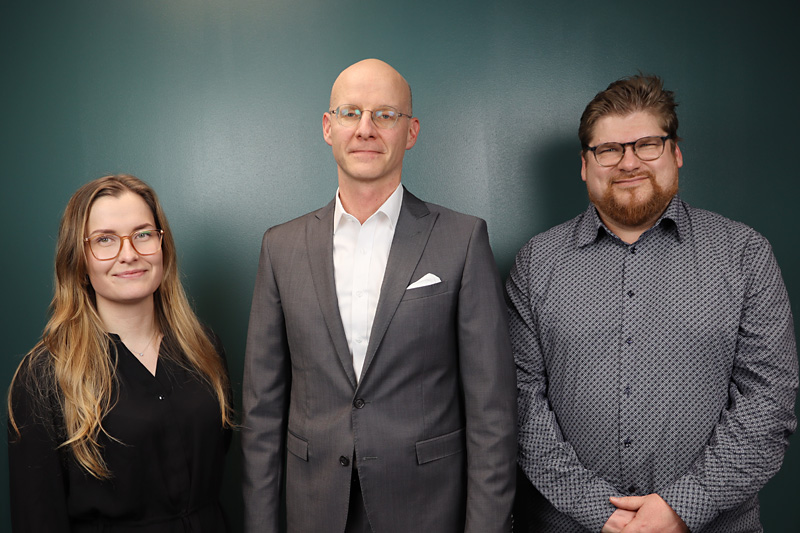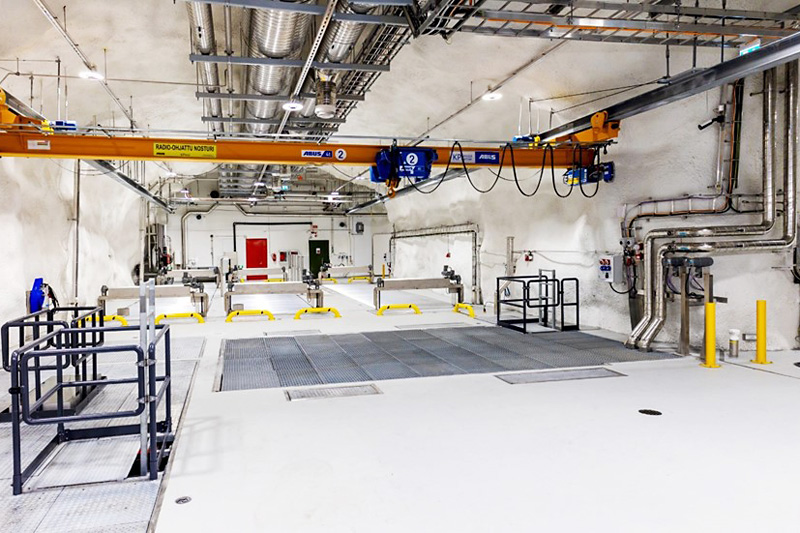Fimpec partners in the development of Carbonaide, a technology for producing carbon-negative concrete

The new Carbonaide technology makes it possible to produce carbon-negative concrete. Fimpec participated in the engineering and implementation of a pilot plant for the technology, which was developed by VTT Technical Research Centre of Finland. Fimpec is now partnering with a start-up company that is developing the technology further.
Concrete production accounts for some eight percent of global carbon dioxide emissions, and there is increasing interest among companies in the industry to decrease emissions. That is why Carbonaide, a technology for producing carbon-negative concrete developed by VTT, has attracted major interest. The solution is based on an effective carbonation method that allows carbon dioxide to be bound into concrete blocks using an automated system at atmospheric pressure.
“The method is compatible with the current concrete manufacturing processes. It can be used for manufacturing all precast concrete elements and products,” says Tapio Vehmas, leader of the Carbonaide team at VTT and currently a staff member at the start-up company. “Emissions can be reduced while using cement as a binder, which is the standard practice, but the method also enables replacing cement with material from industrial side streams, such as blast furnace slag, green liquor dregs and bio-ash. Using these new material streams results in a product with a negative carbon footprint.”
Fimpec’s contribution visible in the pilot plant
The Carbonaide method was tested in 2022 in Rakennusbetoni ja Elementti Oy’s production in Hollola using a pilot plant built in two industrial containers. According to Vehmas, Fimpec had a major role in the engineering and commissioning of the pilot plant.
“When the project proceeded to the pilot stage, I sent requests to engineering companies concerning the implementation of the plant. Fimpec contacted us, we started co-operating and set out to jointly work out how to realise the pilot plant, starting from my initial sketches. Later on, Fimpec arranged a competitive tender with subcontractors and helped us budget and actually build the pilot plant,” Vehmas says.
“From our point of view, this was a very interesting project and we genuinely wanted to be a part of it. It is really exciting to be part of developing a new technology that can help globally decrease carbon dioxide emissions and mitigate climate change,” says Tomi Vainio, Head of Operations at Fimpec.
Carbonaide progressing towards commercialisation
Since the pilot testing in 2022, development of the Carbonaide method has continued based on the lessons learned. A start-up company now continues the work to commercialise the technology, with support from the VTT LaunchPad business incubator.
“The technology has been proven effective and economically viable. The goal is to sell carbon-binding concrete at the same or even a lower price than existing concrete products. The details have been fine-tuned, and we have shifted the focus of the technology away from the materials and developed the process from a commercial angle. Thanks to these changes, the method is now more scalable,” Vehmas says.
In addition to concrete products, the solution has potential markets in CO2 emissions trade. The emerging company’s business idea also includes receiving CO2 from emissions trading platforms and using it for the benefit of the technology. The binding of CO2 therefore also opens up an additional market for the company.
The positive future outlook is validated by several contacts from across the globe. Carbonaide also won first prize in the European Association of Research and Technology Organisations’ (EARTO) Innovation Award in the Impact Expected category in October 2022.
“The farthest contacts have come from New Zealand. What surprised us is that some of the concrete producers who have contacted us were aware of the possibilities of carbonation in binding CO2, but there has been no working technology available,” Vehmas reveals.
He says Fimpec continues to work with Carbonaide to develop the technology: “They have become our trusted partner.”
For more information, please contact:
Tomi Vainio, Head of Operations, Jyväskylä Engineering, Fimpec Energy Services
Tel. +358 40 7027 777 or email tomi.vainio@fimpec.com
Tapio Vehmas, CEO, Carbonaide Ltd
Tel. +358 40 591 1589 or email tapio.vehmas@carbonaide.com


